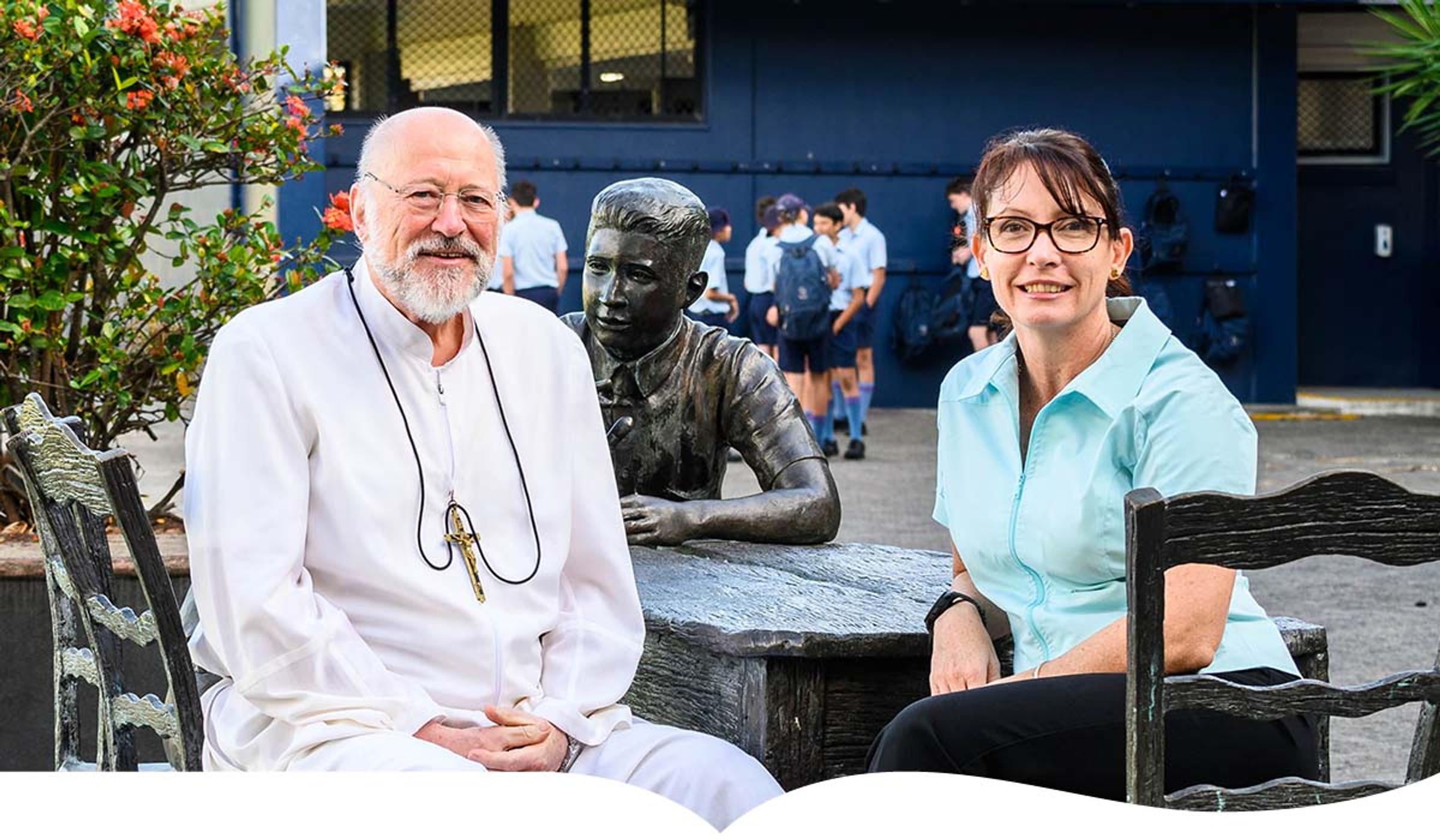COUNSELLING CONNECTIONS
News from College Counsellor Mrs Marijke Keller

COUNSELLING CONNECTIONS
News from College Counsellor Mrs Marijke Keller


As a parent, the best way to ensure your son experiences success in 2023 is to help him identify and set some educational goals. But, knowing how to set goals is just part of it. First, it’s crucial to be able to explain to him why goal setting is essential.
What are Educational Goals?
Ask your son to think of what he’d like to accomplish this year. If he’s in Year 7, he may like to think about mastering his organisation each morning before school (what books to pack in his bag, is his laptop charged? Does he have PE?).
On the other hand, if your son is a senior, his educational goals may include a choice between gaining experience in his field of interest, or increasing his results to improve his ATAR.
Either way, these educational goals are declarations that refer to his abilities, skills and qualities he intends to acquire once his academic journey or part of that journey is completed.
Why Setting Educational Goals is Important
Life isn’t easy. As your son travels his educational journey, he'll find obstacles in his path. And those obstacles may cause him to lose his way without clearly defined goals. Focusing on a defined target will help him continue his commitment to progressing towards, and ultimately achieving his goals, even if someone tries to talk him out of them. Goals not only provide motivation but may also ensure he stays the course when the going gets tough.
How to Set Educational Goals
SMART goals work! SMART stands for: Specific, Measurable, Achievable, Relevant and Time-bound.
Specific goals are clear, defined, and easy to understand without ambiguity. Measurable means your goals are set so that you can track your progress toward them. Achievable goals are those that, while they may stretch you they are not unreachable. Relevant goals are realistic regarding your purpose, in this case, as they relate to your education. Time-bound means when you set the goal, it is not open-ended and ongoing; you need to have a start and projected end date.
Here are some examples of popular and useful educational goals which I suggest you show your son. Not all of them will appeal to him, so search and find the ones that do.
1. Improve on last year’s results.
Raising your grades can be an ambiguous goal unless you phrase it more specifically. First, define and then write down the steps you need to take to raise your grades. Understand what it is currently and what it will take to raise it.
2. Improve your assessment/exam skills.
Write down what you intend to do before and during tests, such as mentally preparing, including adequate study, and focusing on keywords in the test questions.
3. Note taking
The benefits are two-fold: taking notes in class enables you to remember what you’ve heard and taking notes to review will give you a better comprehension of the material.
Define what needs to be notated. Only take notes on the main points your teacher makes. Listen for clues as to the notes you need to study; a teacher may indicate if the material will be on a test. Also, underline or highlight the most essential points, and notate any references if you need to look up information regarding a subject.
4. Learn emotional control
Ask your son, “have you heard the term “emotional intelligence?” Talk about the awareness of your emotions which would be the first step toward learning to control them. Look at the impact of your feelings in the past. When you feel emotions rising, take a moment to think through the problem and determine the most appropriate action to take rather than letting your initial emotions dictate your actions.
5. Develop a positive outlook
Help him surround himself with positive friends. Next, celebrate every small success. Be grateful for the small victories, each time he walks into class on time, and each time he meets another goal. Finally, feed his mind with positive affirmations daily.
6. Exercise
Use a daily planner to schedule regular exercise. Make it a priority as you would any appointment, knowing it is vital for physical and mental health as well as helping meet educational goals.
7. Eat healthy foods
Choosing to eat a healthy diet will help him have more energy, optimal brain function, and a robust immune system. This means he’ll miss fewer days of class to sickness too!
8. Attend every class
Make attending classes a priority over other activities, no matter how tempting.
9. Decrease screen time
Limiting the time he’s focused on a screen for whatever reason can help him meet his goals, such as improving his sleep, decreasing headaches, and giving him the time and focus to tackle any obstacles or problems.
Intentionally limit the time he uses screens, whether it’s his smart phone, tablet, computer, or television.
10. Improve memory
This may be one of the most important gifts your son can develop for his educational journey and life. Improving memory can improve focus on tasks, efficiency as a learner, and optimise study time.
Repetition can help when memorising information before assessment time. Not just reading material several times but reading it aloud can give a better understanding of it and a better chance of retaining the information. Group pieces of information together that relate to each other.